Advanced electromyography testing reveals exactly what’s causing your muscle weakness, numbness, or tingling symptoms.
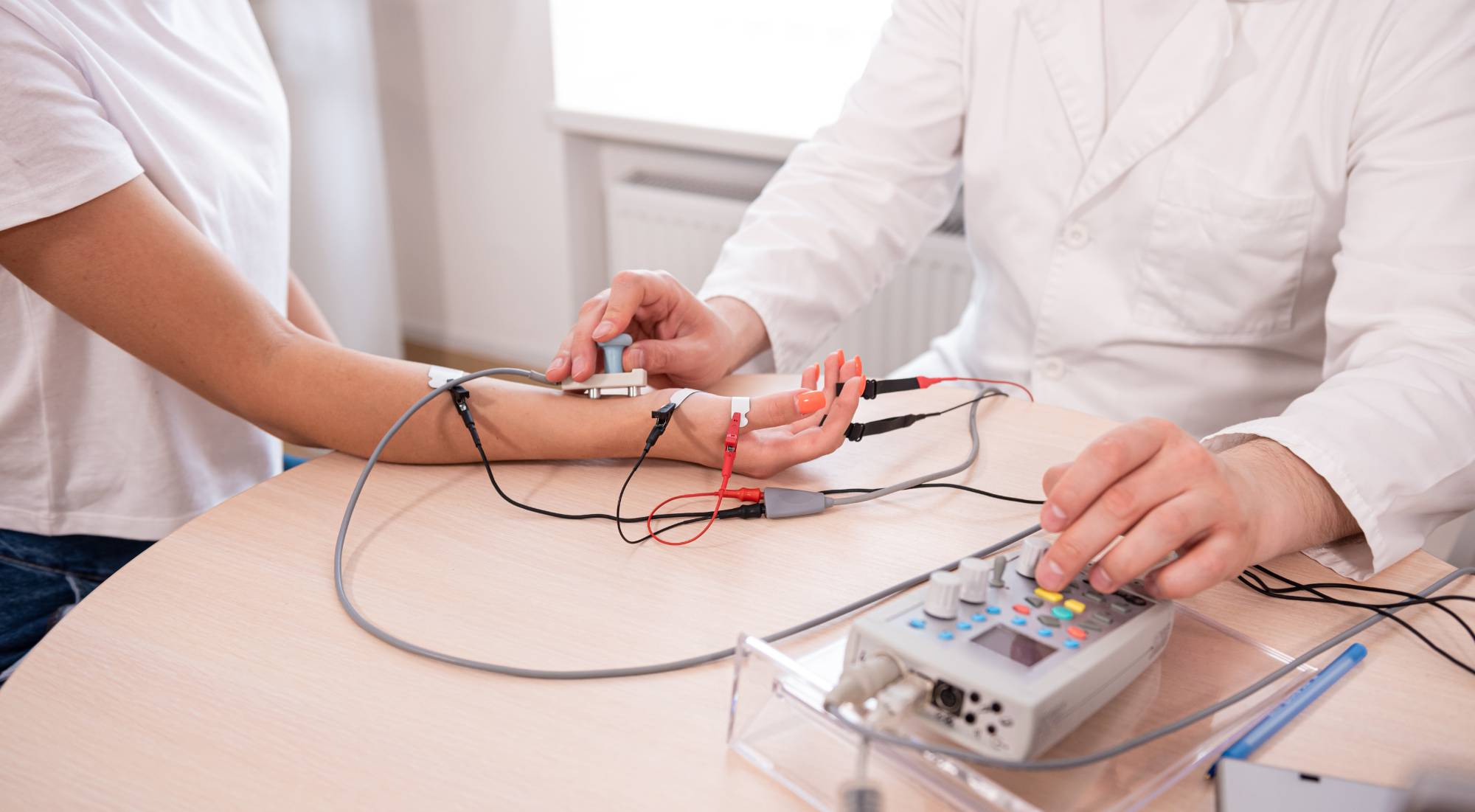
Reviews
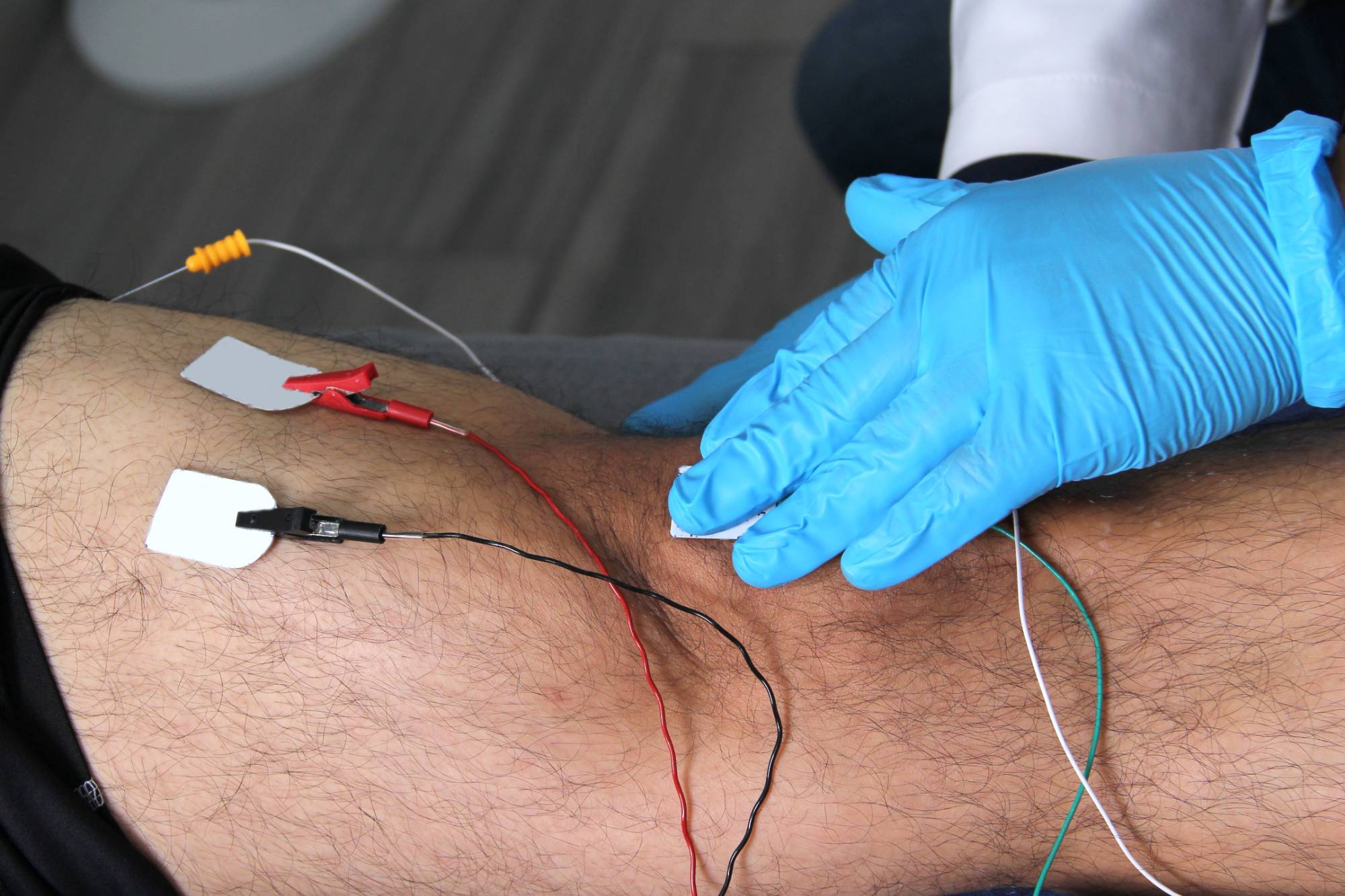
You’ve been dealing with unexplained symptoms long enough. That numbness in your hands, the shooting pain down your leg, or the muscle weakness that’s affecting your daily life deserves real answers.
EMG testing gives you those answers. This diagnostic procedure measures the electrical activity in your muscles and nerves, pinpointing exactly where the problem lies. No more guessing. No more wondering if it’s serious or if it’ll get worse.
When you know what’s causing your symptoms, you can move forward with confidence. Your doctor can create a targeted treatment plan instead of trying generic approaches that might not work. You’ll understand whether you’re dealing with nerve compression, muscle disease, or another condition that has specific solutions.
NY Spine Medicine has been serving the Flatlands community and surrounding Brooklyn neighborhoods for years. We specialize in diagnosing and treating spine, muscle, and nerve conditions using the most advanced diagnostic equipment available.
Our team understands that getting an EMG test can feel intimidating. That’s why we focus on clear communication, explaining each step of the process and what the results mean for your specific situation. You’re not just another test result here.
Located conveniently in the area, NY Spine Medicine eliminates the need to travel to Manhattan for quality diagnostic testing. We accept most insurance plans and provide transparent pricing so you know what to expect.
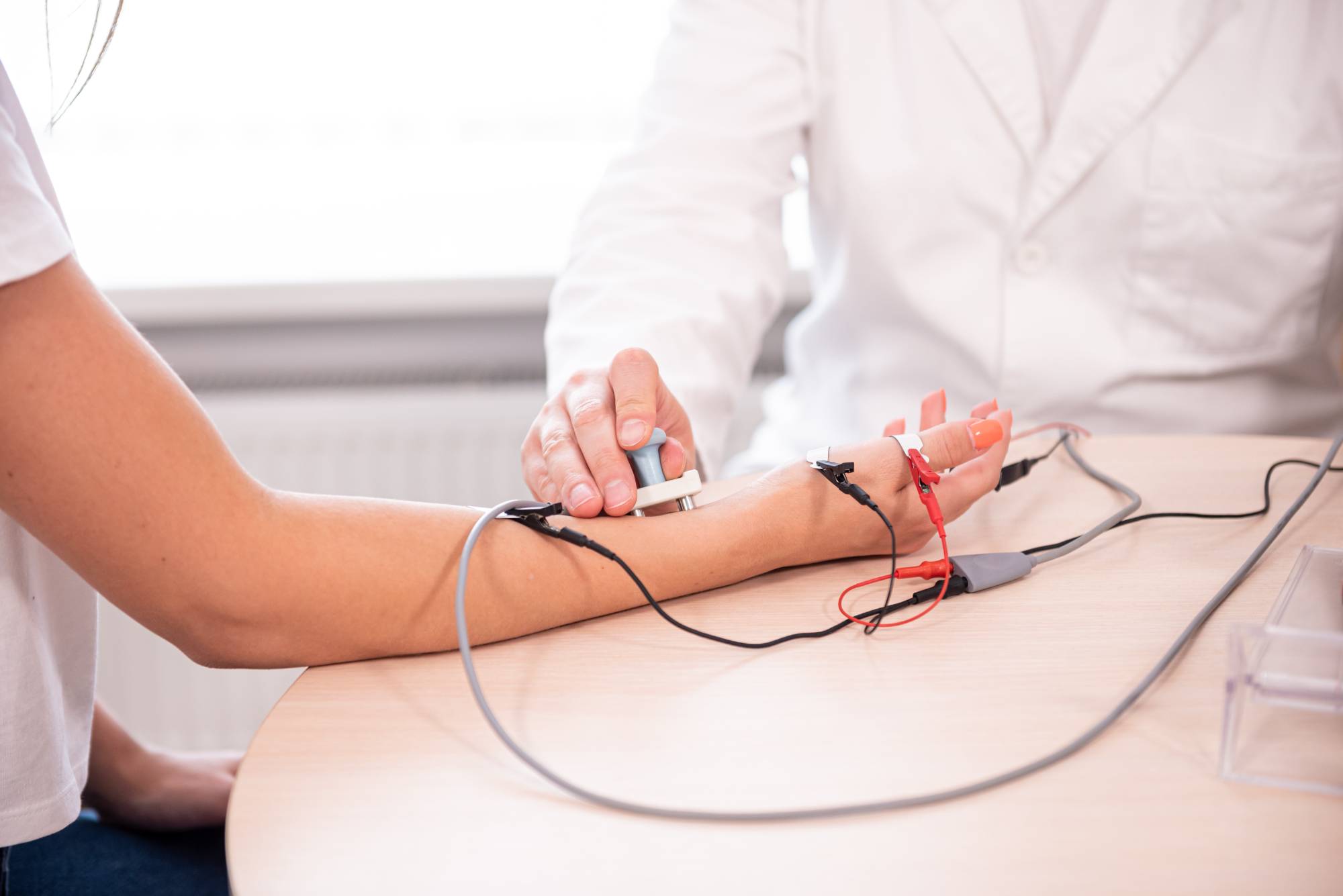
Your EMG testing appointment typically takes 30 to 60 minutes. The process involves two parts: nerve conduction studies and electromyography testing, both designed to give a complete picture of your nerve and muscle function.
First, small electrodes are placed on your skin to measure how well your nerves conduct electrical signals. You’ll feel mild electrical pulses, similar to static electricity. This nerve conduction study shows if your nerves are transmitting signals properly and at normal speeds.
Next, a thin needle electrode is inserted into specific muscles to measure their electrical activity. The needle is much thinner than those used for blood draws. You’ll be asked to relax certain muscles, then contract them gently while the electrical activity is recorded.
The entire process provides detailed information about nerve damage, muscle disorders, and the location of any problems. Most patients find the test more comfortable than they expected, and you can return to normal activities immediately afterward.
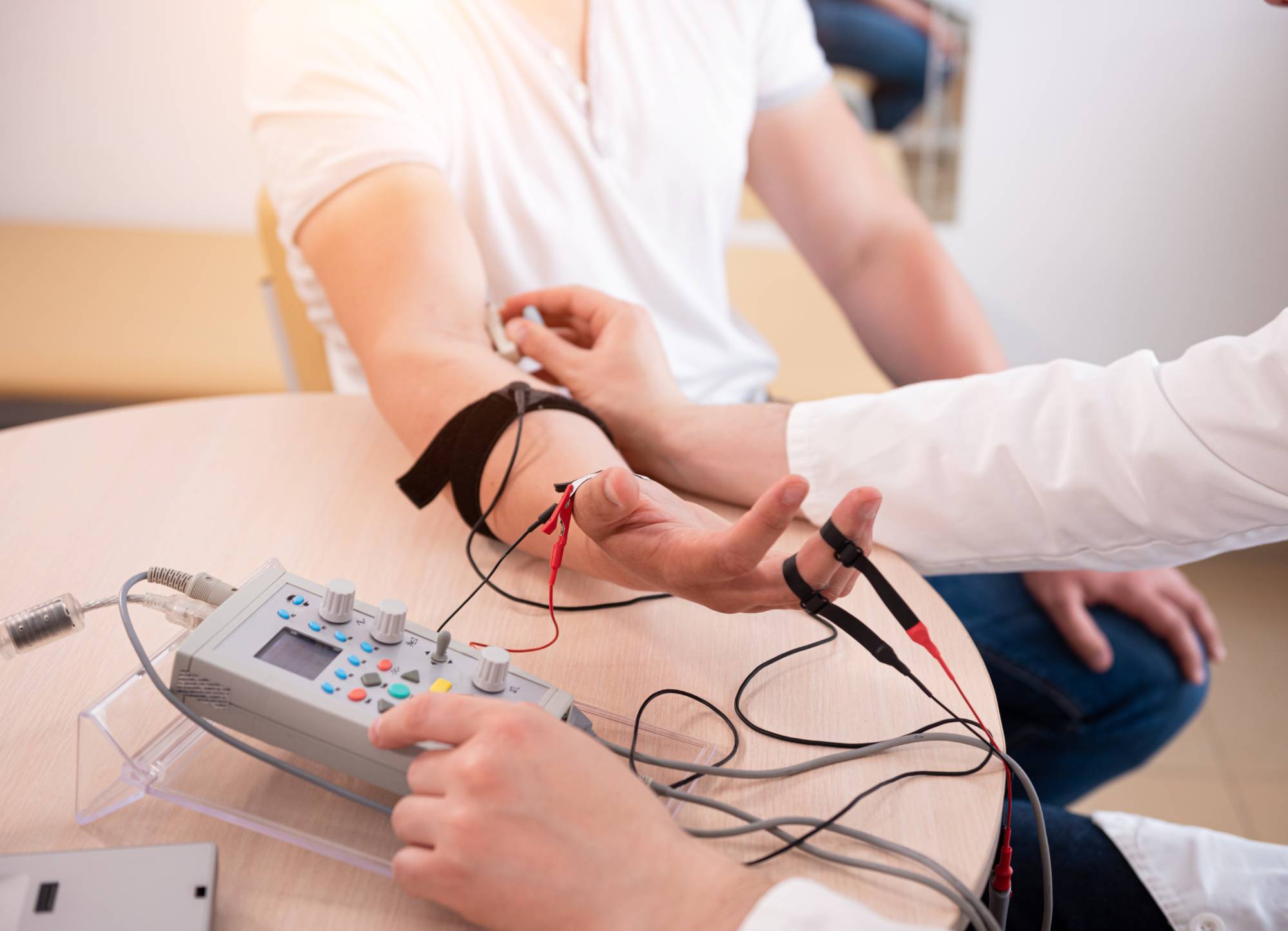
Ready to get started?
Your EMG testing includes both electromyography and nerve conduction studies in one appointment. This comprehensive approach ensures nothing is missed and provides the most accurate diagnosis possible.
The testing can diagnose conditions like carpal tunnel syndrome, sciatica, herniated disc nerve compression, peripheral neuropathy, and various muscle disorders. Many Flatlands residents come in with symptoms they’ve had for months or years, finally getting the clarity they need to move forward with treatment.
Results are typically available immediately after testing, with a detailed report following within a few days. Our medical team takes time to explain what the findings mean and how they relate to your symptoms. You’ll leave understanding your condition and the next steps for treatment, whether that involves physical therapy, medication, or other interventions.
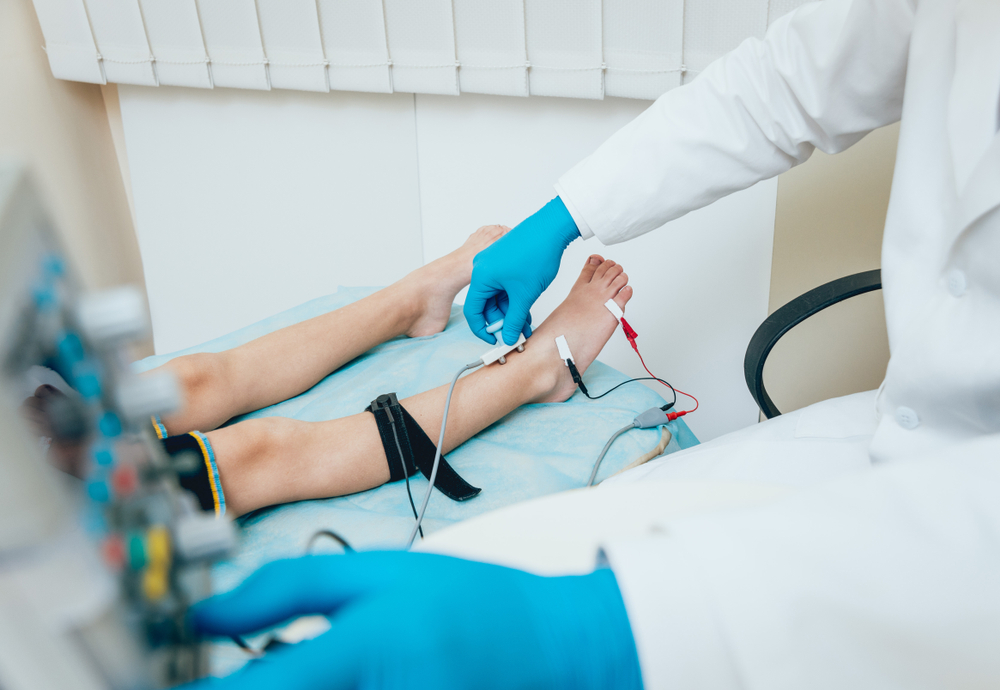
New York:
Florida:
Support